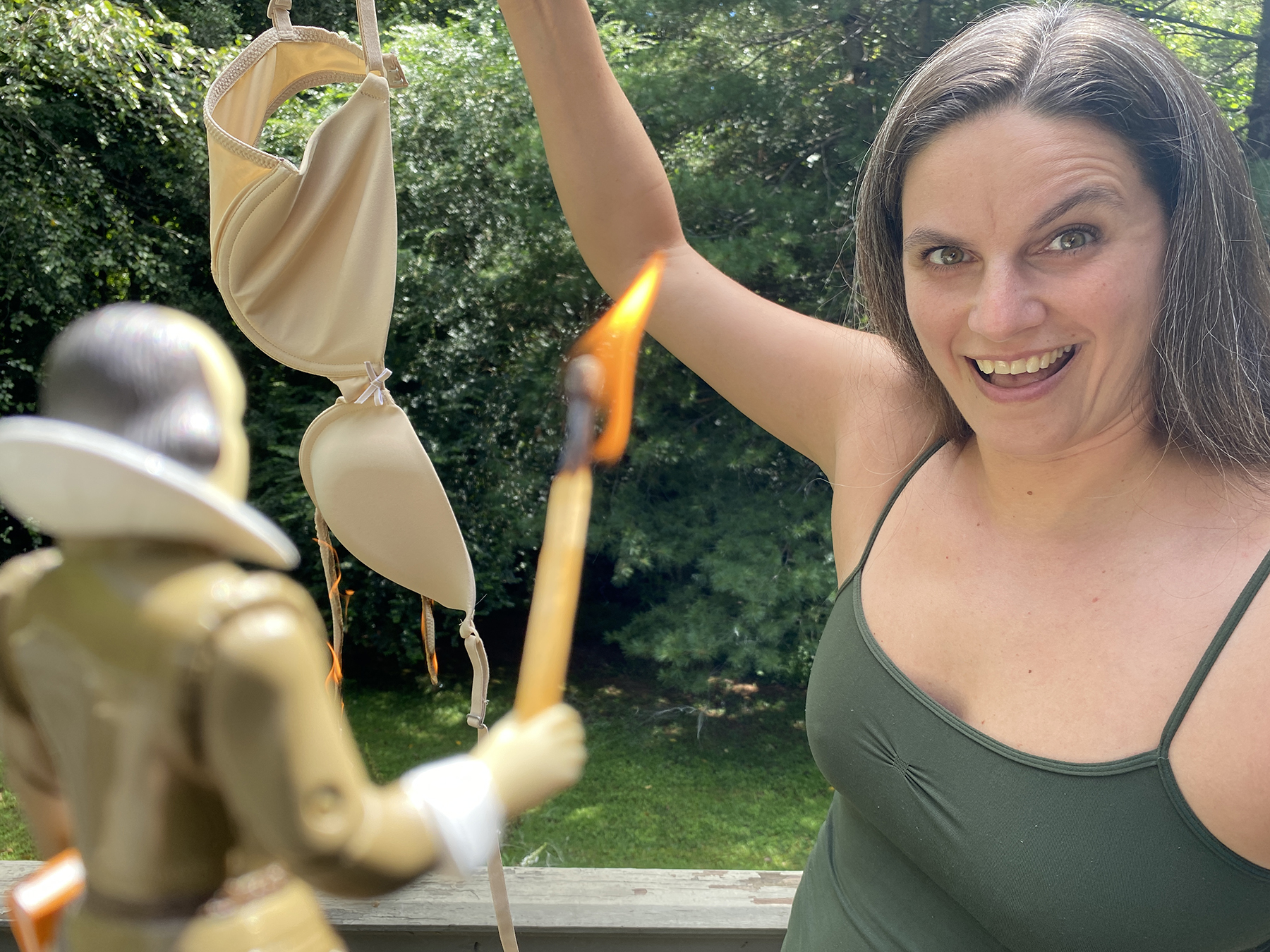Bea
Bea, played by Carol Anne Hartman, is Nick’s wife, and she does her best to defy the limited role of Elizabethan women to help support the household. She even disguises herself as a man to take on different jobs despite her husband’s opinion.
Bea takes on several disguises as a man to earn extra income for the house. Throughout Shakespeare’s plays, several heroines don male personas to get what they want or need. The most important examples include Imogen (Cymbeline), Rosalind (As You Like It), Portia (The Merchant of Venice), Viola (Twelfth Night), and Julia (The Two Gentlemen of Verona).
Beatrice is a fictional character in William Shakespeare's play Much Ado About Nothing. Atypically for romantic heroines of the sixteenth century, she is feisty and sharp-witted; these characteristics have led some scholars to label Beatrice a protofeminist character.
During the twentieth century, more and more performances favored a feminist Beatrice with increased combativeness. Regardless of whether Beatrice can be considered a contemporary feminist, she certainly disrupted conventional sixteenth-century gender norms. Some argue that Beatrice appropriates phallic language and thereby places herself among male society. Her speech is more typical of male characters of the period.
Carol Anne Hartman is a singer/songwriter, actress, photographer, graphic designer, worship leader, and marketer. She’s the mother of three kids and wife of Music Director and Hickory Arts Artistic Director Jeff Hartman, who, after 25 years of extensive research, can confirm she is “feisty” and, as you can see, has taken on “different jobs to make extra income for the house.” (Type-casting 101). Hartman was last seen as Karissa in Junk at The Hickory Community Theatre and Alice in Bright Star at The Green Room Community Theatre.
#somethingrotten @hickorytheatre August 27-September 11 #kungfugripshakespeare #everythingartist
*The bra-burning trope echoed an earlier generation of feminists who called for burning corsets as a step toward liberation. In 1873 Elizabeth Stuart Phelps Ward wrote:
Burn up the corsets! ... No, nor do you save the whalebones, you will never need whalebones again. Make a bonfire of the cruel steels that have lorded it over your thorax and abdomens for so many years and heave a sigh of relief, for your emancipation I assure you, from this moment has begun.
Feminism and "bra-burning" have become linked in popular culture through a series of civil rights, antiwar movements, and Miss America protests.



Leave a Reply